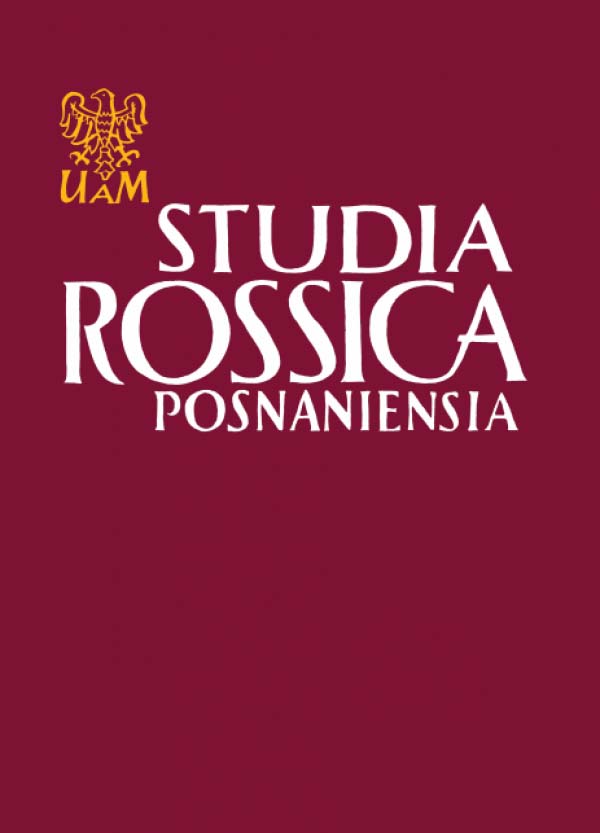PROBLEMATYKA HISTORIOZOFICZNA W DRAMACIE LEONIDA ANDRIEJEWA "CAR-GŁÓD"
L. ANDREYEV’S DRAMAT 'ZAR-HUNGER' FROM THE HISTORIOSOPHICAL POINT OF VIEW
Author(s): Maria CymborskaSubject(s): Language and Literature Studies, Studies of Literature, Philology
Published by: Uniwersytet Adama Mickiewicza
Summary/Abstract: This paper deals with the historiosophy of L. Andreyev’s drama ‘Tzar-Hunger’. The author concentrates mainly on the analysis of its structure that is the function of the writer’s philosophy. She starts with the statement that Andreyev’s play does not constitute a historical reconstruction of reality. ‘Tzar-Hunger’ indicates the writter’s departure from the aesthetics of realism. The plot forms a parable of the history of mankind serving as a certain illustrative model. Hence history in this play has above all the mythical and satirical dimensions. It results in the two-fold way of thinking, two-fold motives for action, two-fold structure of time etc. The dominant idea of ‘Tzar-H unger’ is the motif of ‘eternal recurrence’ which determines the com position of the play, the character and the sequence of events and consequently a specific attitude to the problems of revolution. The idea of revolution is woven together with universal reflections on human fate. Thus, it constitutes metaphysical and ethical rather than a socio-political one. What is essential for its interpretation is the question of death and flight of time, strongly emphasized in ‘Tzar-Hunger’. By means of a thorough description of the expressionistic poetics of ‘Tzar-Hunger’, the semantic interpretation of the motifs of dance, music, simultaneousness of space and time, the author of the paper points to multiplicity of aspects of the question of revolution; the ambivalent treatment of this in the drama and the co-existence of various points of view.
Journal: Studia Rossica Posnaniensia
- Issue Year: 4/1973
- Issue No: 1
- Page Range: 61-77
- Page Count: 17
- Language: Polish

